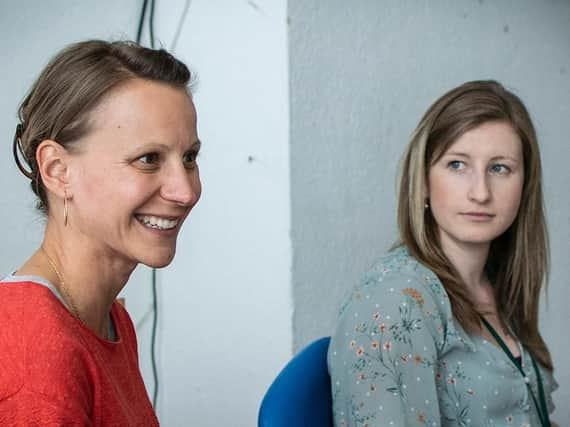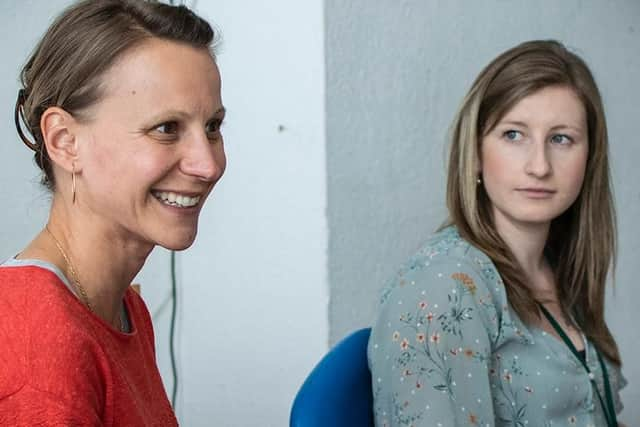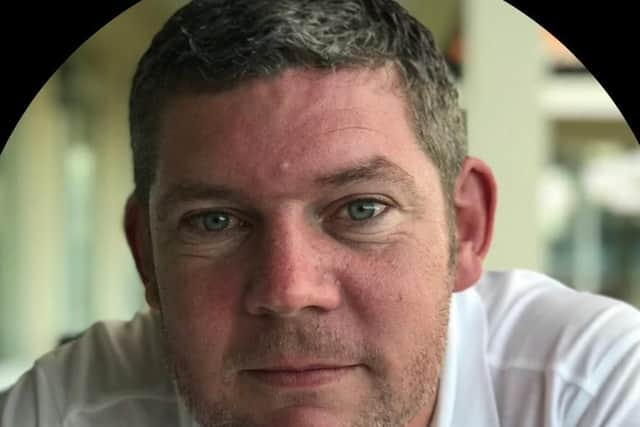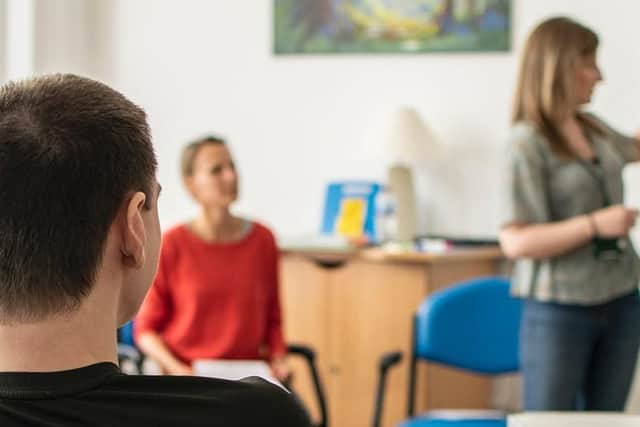Meet the charities in Crawley and Horsham helping those who are seeking mental health support


After Rick Fraser, chief medical officer at Sussex Partnership NHS Foundation Trust, told us that mental health services were ‘underfunded and overstretched’ with the number of under 18s being referred at a five-year high, we spoke to some of the organisations working to support young people in our communities.
Crawley Community & Voluntary Service
Charity Crawley CVS told us that children and young people’s’ mental wellbeing is a ‘priority area’ for Healthwatch West Sussex.


Advertisement
Hide AdAdvertisement
Hide AdIt said it is currently developing some engagement tools with young people and will shortly be working with Crawley College, ‘to understand from young people what helps them to stay mentally well, what support is needed, and where the challenges are in getting this support’.
A spokesman added: “There is to be an independent review of Sussex-wide support for children and young peoples’ emotional and mental wellbeing support, and our aim is input what we hear into this review and influence the outcomes accordingly. We understand a panel for this review is still being set up and we are pushing for more information around this work.”
abandofbrothers
The Crawley branch of abandofbrothers works with troubled young men to give them a life full of connection, purpose and meaning.


Commenting on the pressures on our mental health services, mentor Darren MacDonald said: “Our purpose is to mentor and support young men (18-25) who are not where they wish to be in life.
Advertisement
Hide AdAdvertisement
Hide Ad“Originally this started as support for young men who were in the Criminal Justice System but is more widely encompassing due to our links with local community groups such as the Open House.
“As part of the mentoring, we meet the young men on a one-to-one basis weekly and discuss their goals and ambitions and support them to achieve them - whether that be getting a place to live, a job, re-building a broken relationship with family and/or friends.”
Darren said the amount the group has signposted mental health support has ‘increased dramatically’ during the five years he has been there.


“Generally through the media, much emphasis is being placed upon removing the stigma of talking about mental health,” he said.
Advertisement
Hide AdAdvertisement
Hide Ad“We encourage this and the young men feel open to talk about issues ranging from ADHD to suicide and everything in between. This is a positive that more people feel open to discuss their concerns.”
However, Darren feels the infrastructure to cope with these issues ‘is not supporting the need’.
“Many of the issues we discuss require professional support that we can’t offer and when we signpost them to the ‘appropriate’ place they often have a waiting time that exceeds their need,” he explained.
“So my main feeling is that the burden of support seems to fall on charitable organisations such as our own and when signposted there is little or inadequate professional support.
Advertisement
Hide AdAdvertisement
Hide Ad“I also feel that there is not a single strategy for signposting with various different pilot projects in progress meaning we would present the same young man through various channels when the first does not work - this may be inflating the numbers. It is great to de-stigmatise and get people talking but unless the framework is in place behind it nothing gets resolved.”
Sussex Oakleaf
This charity provides community-based support specifically designed for young people aged 16-25 years with mental health issues across Crawley, Mid-Sussex and Horsham.
Philippa Thompson, chief executive, said: “We set up the service, called Be OK, in April 2017 and have worked directly with young people themselves to co-produce the look and feel of the service.
Advertisement
Hide AdAdvertisement
Hide Ad“Evidence showed that younger people did not tend access our adult support services and that there was very little existing community-based provision for people aged 16/17 years.”
Philippa said an evaluation last year showed ‘well over 50 per cent more demand for the service than we had expected’.
She added: "The increase in referrals for young people needing help and support with their mental health is, of course, a big concern for organisations like ours.
“We know that 1 in 5 young people aged 16-24 experiences a common mental health illness, like anxiety, depression or a behavioural or conduct issue (NHS England, “Future In Mind” publication, 2015) and there is a growing local as well as national recognition of the importance of early intervention, which suggests that numbers will continue to grow.
Advertisement
Hide AdAdvertisement
Hide Ad“And although we know that stigma about mental illness still exists today, barriers are being broken down. Talking about mental health is becoming much more accepted, especially in schools and colleges, and across social media.”
Sussex Oakleaf said its Be OK service has enabled it to link young people up with dedicated recovery workers ‘providing one-to-one emotional and practical support’.
“We also provide groups for young people to meet others, learn new skills and grow their confidence and self-esteem, helping them to manage their emotions and mental health difficulties,” Philippa said.
"Sustained investment in the community sector to continue to provide these essential services directly in local communities, and to enable better mental health as young people grow into responsible adults, is absolutely vital."
Case Study
Advertisement
Hide AdAdvertisement
Hide AdThe following is the account of a 16-year-old who received support from Sussex Oakleaf after struggling with depression and anxiety:“Depression has surrounded my entire self, my life. Within myself, it has affected my memory, my solving-skills, my creativity, interest, passion, energy or motivation to do anything. Coming to terms with depression was a journey within itself, it is a struggle to understand a numbness so empty that it almost chokes you.
"With my life, my grades fell at school, I was very close to dropping out of school, and leaving my plans for medical school. My relationships at home fell apart; each day became futile to endure. The mental agony is something I would never wish upon even the evillest person. Loneliness was something I took comfort in. All of this resulted in self-harm taking place in three forms: cutting, ripping out hair, and starvation, and active suicidal thoughts, including an attempt.”
She engaged well with the Be OK Recovery Worker. She attended her sessions regularly and was willing to try different techniques and was open for suggestions.This is how she describes her experience with Sussex Oakleaf:“My support worker made me feel safe, comfortable and heard. She helped me gain a broader understanding of depression, not from a third person perspective, but as to recognising one’s own emotional state. She encouraged mindfulness, journaling, self-care.
"And really, she was the only person who was there to simply listen. I had someone to lean on, it was something I had never experienced before. No words can ever amount or justify as to how thankful I am. I have learnt so much in a span of several months, especially how to be considerate with myself, how feelings of discomfort can be a good thing sometimes.
Advertisement
Hide AdAdvertisement
Hide Ad"I have found various coping mechanisms for work-life balance, stress, and am less anxious as a result. My sleep has improved (I went from sleeping every few days to sleeping seven to eight hours a night). My life is slowly rebuilding, something better, something new – I have been able to reflect upon my past experiences and gain a better understanding of past events.”